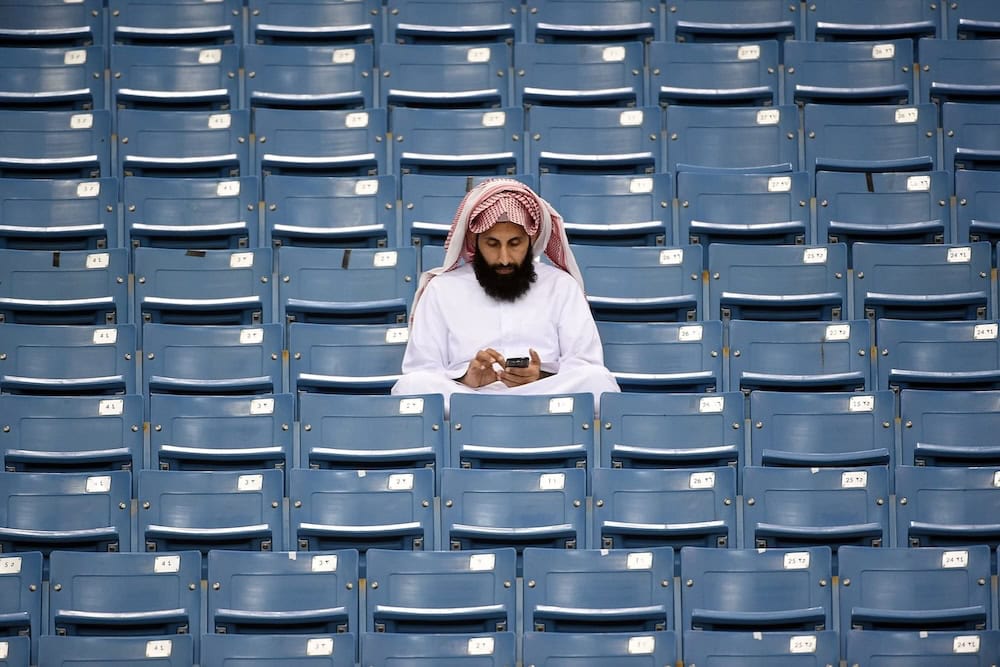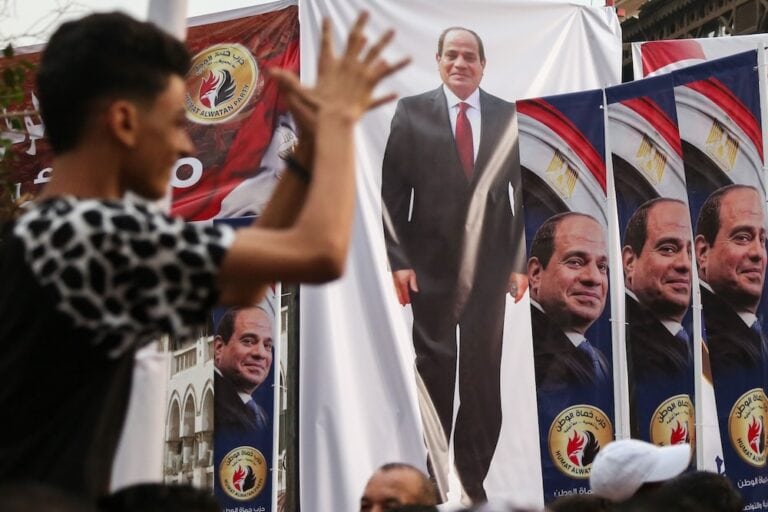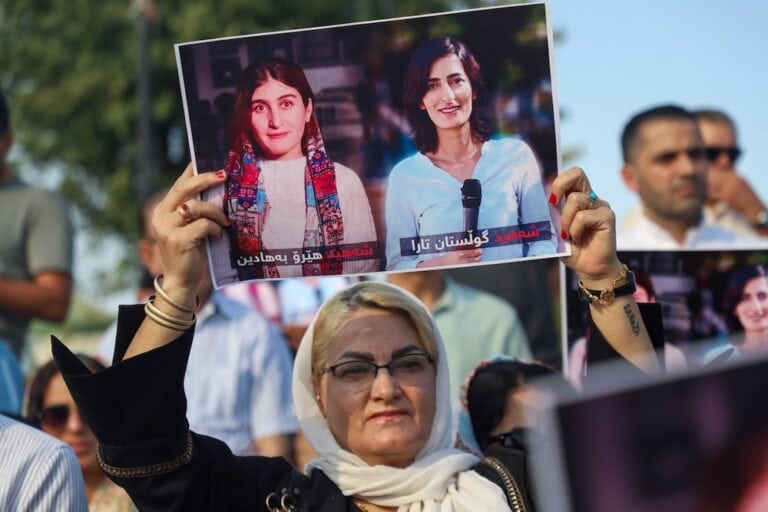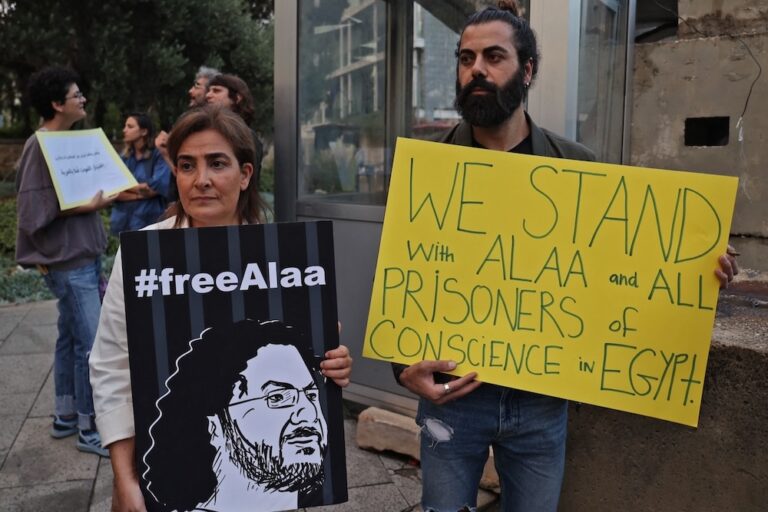Gulf states silence critics with harsh prison sentences and deportations, using vague laws to crack down on online dissent.
This statement was originally published on smex.org on 23 August 2024.
On May 29, Saudi Arabia’s Specialized Criminal Court (SCC) sentenced Professor Asaad Al-Ghamdi to 20 years in prison for a series of posts on X, where he criticized projects related to Vision 2030 and the country’s economic diversification program.
The SCC’s Counter-Terrorism Tribunal, known for targeting critical voices, also sentenced Saudi-American filmmaker Abdudlaziz al-Muzaini to 13 years in prison and imposed a 13-year travel ban.
This punishment was in response to the Netflix broadcast of Masameer, a satirical animation series set in Saudi Arabia, which was accused of “promoting homosexuality and terrorism.” Al-Muzaini revealed the indictment, which was established in 2022, in a video on his X profile in May 2024, though the video was later deleted.
The Committee to Protect Journalists (CPJ) called for the release of Palestinian journalist Hatem Al-Najjar, who has been detained since January for hosting the popular Youtube podcast in Saudi “Murabba.”
A social media campaign using the hashtag “#Arrest_Hatem_Alnajjar” (#القبض_على_حاتم_النجار) called for the journalist’s detention, leading to his arrest over tweets he posted when he was under 18 years old.
According to SANAD, a Saudi civil rights organization, Al-Najjar expressed his views about various topics on X during King Abdullah’s reign.
In Kuwait, former member of parliament Walid Al-Tabtabai was sentenced to four years in prison last June after criticizing Emir Mishal Al-Ahmad Al-Sabah’s suspension of the National Assembly on 10 May. The former parliamentarian was arrested one day after his post on X.
Following the same pattern, in late January 2024, the Kuwaiti courts sentenced Anwar Hayati to four years in prison for publishing seven posts on X in which he accused the Kuwaiti government of corruption.
The Bidun activist Mohammad al-Bargash was also sentenced to three years of imprisonment in January 2024 for allegedly “spreading false information” on social media and television.
Al-Bargash had criticized the arrest of activist Abu Turki, who was arrested in 2023 for his social media posts. The Bidun community is a stateless minority of Kuwait who are deprived of nationality, and therefore, their rights are neglected.
Social media is one of the few tools that Bidun activists can use to denounce their situation after being persecuted by the authorities for their publications.
In February 2024, Kuwaiti activist Abdullah Feiruz and journalist Fuhaid Al-Ajami were sentenced to five years for an interview published in 2022 in TfTeeeSH. In it, Feiruz criticized a relationship between the Kuwaiti Interior Ministry and an Israeli company.
This June, the appeal court reduced Fairouz’s sentence from five to three years and released Al-Ajami after spending three months in prison.
In the United Arab Emirates (UAE), several human rights organizations reported that since October 7, 2023, dozens of citizens and foreign residents have been summoned and deported due to their social media posts criticizing the Israeli genocide in Gaza. According to the organizations, no official charges or legal justification were given to those deported individuals.
Since the normalization of the relations between the United Arab Emirates and the Israeli occupation in 2020, the UAE has censored and prevented critical voices against the relationship between the two countries.
Ambiguous laws used to prosecute critics on social media
The vague counter-terrorism and cybercrime laws of the Gulf region states are often abused to repress freedom of expression online. In Saudi Arabia, the Atlantic Council described the 2017 Penal Law on Combating Crimes of Terrorism and its financing as “one of the most weaponized laws in the kingdom to crack down on free speech.’’ The ambiguity of what legally constitutes terrorism allows authorities to pursue critical voices for their statements on social media.
According to Human Rights Watch, Saudi Arabia’s indictment against Assaad Al-Ghamdi is based on Articles 30, 34, 43, and 44 of this law. The same legal articles were used against his brother, Mohammed Al-Ghamdi, in 2023, who was sentenced to death for his posts on Twitter and YouTube. The brothers’ social media posts were weaponized as evidence before the SCC.
In Kuwait, the persecution of voices critical of the government is based on the “State Security Law.” According to Amnesty International, Article 15 of this law prosecutes people for sharing “false or biased news, information, or rumors about the country’s internal conditions” and “any action that undermines the national interests of the country.”
Moreover, Law No. 63 of 2015 regarding Anti-Information Technology Crime, commonly known as the Cybercrime Law, is interlinked with the Press and Publications Law (Law No 3/2006), which forbids the publication of content that “violates public order, morals or national security.’’
The activist Salman Al-Khalidi was prosecuted under the Cybercrime Law for criticizing the Saudi government on his social media. This law exemplifies that publishing content against Kuwait’s allies can be punished by the authorities.
In the UAE, multiple Jordanians and Egyptians were deported after being interrogated by the State Security Apparatus (SSA), according to the Emirates Detainees Advocacy Centre (EDAC) and the Euro-Med Human Rights Monitor. The Emirati authorities summoned all the individuals after posting content related to the genocide in Gaza or demanding an end to the Israeli-Emirati normalization.
According to EDAC and Euro-Med, the UAE’s authorities gave no legal justification or explanation for deporting individuals. The UAE’s Federal Decree Law No. 34 of 2021 on Countering Rumors and Cybercrimes took effect on January 2, 2022 and has been widely criticized for silencing free expression.
Using vague definitions of “national security” and “public confidence,” Article 1 of this law forbids the online publication of any “unlawful content” that can harm these definitions. Under Article 22 of the 2021 Cybercrime Law, sharing documents, reports, or data on the internet that may “harm the State’s interests, its governmental agencies, reputation, prestige or standing’’ is also prohibited.
The UAE’s Cybercrime Law of 2021 is an updated version of the Cybercrime Law of 2012, under which the human rights activist Ahmed Mansoor was arrested in 2017 and convicted to 10 years in prison for publishing content on social media related to the breaching of Human Rights in the UAE.
Mansoor was accused of “insulting the status and prestige of the UAE and its symbols, including its leaders,” and “publishing false information to damage the UAE’s reputation abroad.”
Under the pretext of protecting strategic interests and national security, many Gulf states are suppressing the rights of citizens who express themselves freely on social media. This escalation of online repression is a violation of the International Covenant on Civil and Political Rights, according to diverse human rights organizations, who also call to stop the arbitrary campaign of arrests of those individuals.



